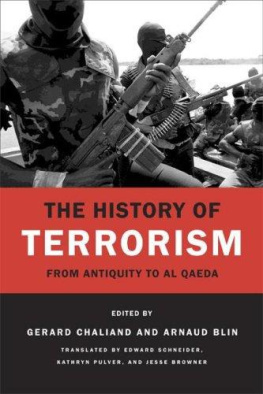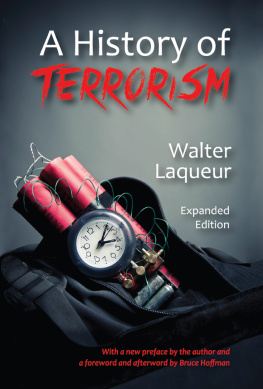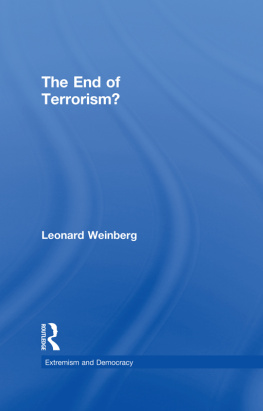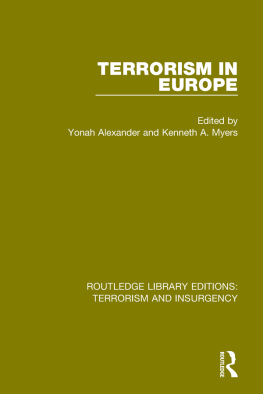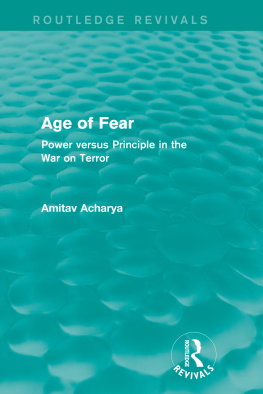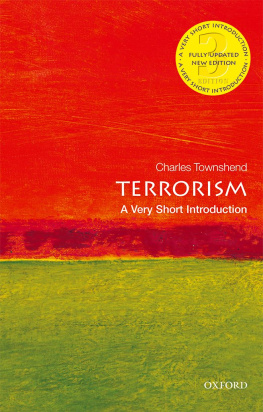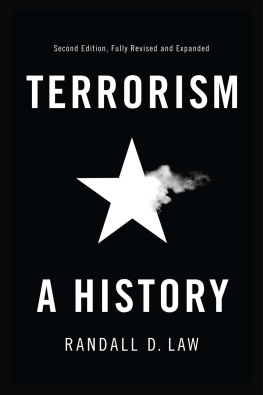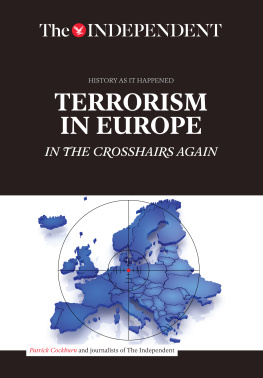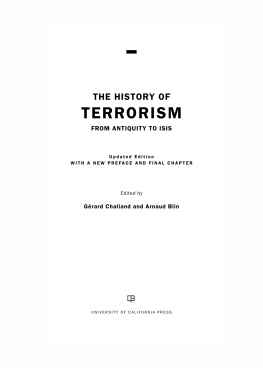THE HISTORY OF TERRORISM
FROM ANTIQUITY TO AL QAEDA
Edited by Gerard Chaliand and Arnaud Blin Translated by Edward Schneider, Kathryn Pulver, and Jesse Browner
Preface
Throughout history, power has more often than not been wielded through terror-that is, by inciting fear. All despotic societies have been founded on fear, as have so-called totalitarian regimes in the modern era. Submission to the established order and to force has been most of humankind's sole avenue to security and, ultimately, to freedom. Without reaching all the way back to prehistory-itself ruled by terrifying insecurity vis-a-vis nature, wild beasts, and other men-the use of terror to govern began at the very birth of organized society as a means of dissuasion or punishment.
Terrere means "to make tremble" in Latin. The first Mesopotamian empire, that of Sargon of Akkad, was founded on terror. The same was later true of antiquity's first military empire, the Assyrian, whose brutal methods of reprisal were intended to crush the spirit and break the will. Announced with warlike violence, terror remains suspended like a sword in times of peace over the heads of all who dare to rebel. In the despotic societies that make up the major portion of history's fabric, it has served as the tool of enslavement and guarantor of mass obedience. State terror, whether implicit or overt, has haunted the centuries as war's bogeyman, the specter of mass murder. Once unleashed, it can set an example to constrain behavior without the necessity of fighting. The Mongols and Tamerlane used terror in this way to reduce cities without having to resort to siege.
Historians of terrorism may point out that the word "terror" applies to the state terror of the French Revolution, but they often neglect to add that, to varying degrees, the phenomenon was a constant of earlier eras and has also been prevalent ever since. Indeed, terrorism, the principal aim of which is to terrorize, is a historically far broader phenomenon than suggested by the term's current usage, which essentially boils it down to the description or analysis of the illegitimate use of violence in terrorist-type activities.
The fact that the most notorious instances of contemporary terrorism have a religious dimension, notwithstanding their political aims, should serve to remind us that this has also been true historically of most forms of terrorism, such as that of the Jewish Zealots of the first century c.E., for example, or of the Isma'ili sect of Assassins from the eleventh to the thirteenth centuries. Indeed, the religious point of reference was long central to most societies, and this phenomenon has not yet exhausted itself.
Nowadays, terrorism beats out guerrilla warfare as the preferred and practically exclusive weapon of the weak against the strong. Its primary target is the mind. In that sense, terrorism is the most violent form of psychological warfare, and its psychological impact is commonly understood to be far greater than its physical effects. Stooping to often pathetic means, terrorism is a way of creating power in the hope of seizing from below that which the state wields from on high.
Gerard Chaliand and Arnaud Blin
CHAPTER 1
INTRODUCTION
Gerard Chaliand and Arnaud Blin
Of all the passions capable of enslaving man's will, none is more incompatible with reason and liberty than religious fanaticism.
Robespierre
It happened in Washington, D.C., at a conference on terrorism-or, more precisely, counterterrorism-organized by the Pentagon's Defense Intelligence Agency (DIA). Most of the participants worked for the diverse (and numerous) American intelligence services, which had all, to varying degrees, become involved in the war on terrorism. After the Cold War, most of these cloak-and-dagger men had moved into the specialized and growing field of "new threats"-threats that also include nuclear proliferation, weapons of mass destruction, and organized crime. This strange gathering of identically dressed men listened attentively to a series of speakers hold forth on the essence of the counterterrorism struggle. Late in the day, however, as the last speaker was about to take the floor, a bizarre figure strode up to the podium carrying a briefcase and a bag. With his long hair and black hat, his thick beard, sunglasses, torn pants, and leather vest, he stood out like a sore thumb from the intelligence bureaucrats. Suddenly, opening the briefcase and bag with lightning speed, the stranger threw two hand grenades into the crowd and pointed an M16 rifle into the paralyzed audience.
There was no explosion, and the M16 remained mute. The man calmly took the microphone and began to address the audience. The listeners, many of them at least, immediately recognized a familiar voice. In fact, it was the director of the DIA, a general who had disguised himself as a "terrorist" to demonstrate the ease with which anyone could gain entry into the building where the colloquium was being held (on the campus of George Washington University, where no security measures had been installed) and wipe out the cream of the American counterter- rorist crop. Back in uniform, the general had these prophetic words to say: "One day, terrorists will attack a building like this, in Washington or New York. They will kill hundreds of people and deal us an unprecedented psychological blow. The question is not whether such an attack will occur on American soil, but when and where. It is up to you, gentlemen, to be prepared. The security of our territory is in your hands." The colloquium took place in 1998. Three years later, nineteen determined men killed some three thousand people in the worst terrorist attack in history, striking New York and Washington, D.C. The Pentagon itself, headquarters of the DIA, was hit. In their negligence, the American intelligence services had been unable to prevent the operation.
In hindsight, this scenario seems almost surreal: first, because of the warning issued by the Pentagon intelligence chief and second, because of his staff's inability to follow his advice despite its specificity. There was also a disconnect between the quaint picture of a marginal fanatic-prac- tically the living image of the cartoon anarchist in black cape, bomb in hand-prepared to blow the place to smithereens and the speechifying on the imminence of high-tech terrorism, the notorious "hyper-terrorism" against which all new policies were being drafted.
The terrorist phenomenon is more difficult to conceptualize than it would at first appear to be. The issue tends to be confused by ideological interpretations, along with the temptation, especially on the part of governments, to resort to diabolical imagery whenever the term is trotted out. A good place to start might be by recalling that the point of terror is to terrorize-a role historically assumed by organized force, be it state or army, at least when it comes to despotic regimes. That has always been the case with nondemocratic countries. In other contexts, in times of war, terror may be legitimized, even when deployed against civilians. In the modern era, the bombing of Coventry, Dresden, and Tokyo,1 and the atom bombs dropped on Hiroshima and Nagasaki, come to mind.
Terror in the name of religion, holy terror, is a recurring historical phenomenon. A well-known example of this were the first-century Jewish Zealots, also known as the sicarii. This murderous sect helped to incite an uprising against the Roman occupation that resulted, inter alia, in the destruction of the second temple in 70 c.E. and the Diaspora. The Isma'ili sect known as the Assassins was an Islamic correlate.2 For two centuries, between 1090 and 1272, it made the political assassination of Muslim dignitaries by the blade its trademark. No Christian sect ever used terror to such harrowing effect, although we might note the fifteenth-century Taborites of Bohemia, the sixteenth-century Anabaptists, and the active anti-Semitism of the first crusade in 1095, not to mention the excesses of the Inquisition. In any case, messianic movements traffic in and thrive on terror.3

